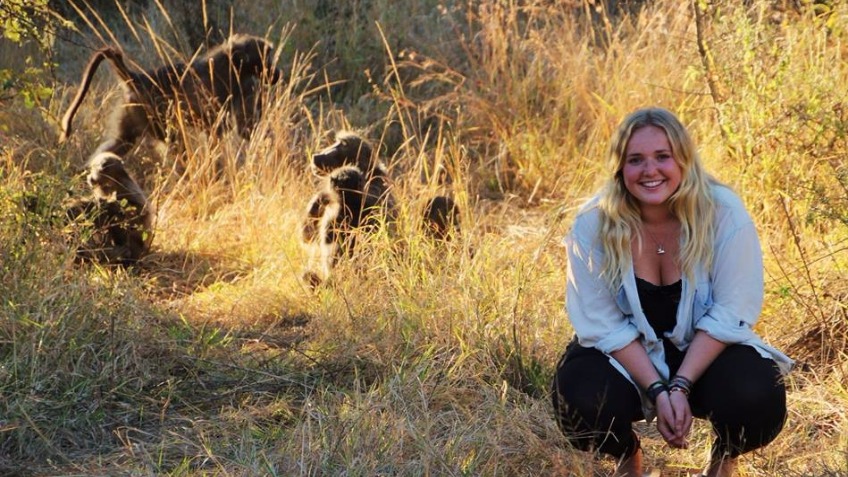Hello, my name is Ellie, and I'm going to tell you a little story about why I need your help. I'm fundraising for a research project assessing the distributions and abundances of yellow baboons and vervet monkeys in a national park in the country of Malawi. The study site is Vwaza Marsh Wildlife Reserve, and as with most of Malawi, very little is known about the primate species living here. The data collected will act as a baseline population assessment of primates for this area, from which all future studies can be compared with to monitor populations. If the current populations are not known, how can we be sure the primate community is preserved for future generations.
Essentially, we're trying to put the monkeys of Malawi on the map.
Why monkeys in Malawi...
With the help of Lilongwe Wildlife Trust, and the guidance of many others, I am hoping to study the distributions and abundances of two species of primates in Vwaza Marsh Wildlife Reserve, yellow baboons (left) and vervet monkeys (right).

(Left) Yellow baboon, photo by Amanda Harwood, Lilongwe Wildlife Trust in Kasangu National Park, Malawi. (Right) Vervet monkey, photo by Ellie Darbey in Kruger National Park, South Africa.
These primate species are widespread, intelligent and highly adaptable, meaning they know how to make the most of humans living in their environment. Sometimes they can be cast in a bad light and even face active persecution. For me, this makes them all the more worth conserving. However there is a reason these primates are common: they play a vital role in keeping their ecosystems happy. They are incredibly important seed dispersers, spreading a wide range of plant species over a large area. But because these species are thriving, they are not always top of the priority list when it comes to funding. That's why we, and the LIlongwe Wildlife Trust in Malawi, need your help.
This research is incredibly important for Malawi, as diurnal primates have not been studied at all in this country, and therefore are not mentioned in any biodiversity action plans or conservation management programmes. This means there are no safeguards in place to protect primates like these in future. If we can create some baseline metrics, we can help people working in national parks to follow realistic, effective protocols to ensure the success of the primate populations in the future.
Who am I...
I'm a Master's student who has chosen to study these primates that do not get a lot of attention from funding because they are not highly endangered. You may be asking why I chose to do this? Well it started in South Africa. I studied a BSc in Zoology, during which I was fortunate enough to do a placement year in South Africa studying monkeys (aka dreams came true). Whilst studying the samango monkeys, I was surrounded everyday by baboons and vervet monkeys, and discovered a fascination with all of them (see above for picture of me photobombing a nice picture of baboons enjoying the sunset!). Since graduating I've pursued this passion in primatology, coming to Oxford Brookes University to study for my MSc in Primate Conservation. This project will be for my dissertation, and I hope to publish the results and continue to improve the awareness of primate conservation in Malawi.
How YOU can help!
Donate, share, tweet, anything you can - myself and the monkeys of Malawi are extremely grateful! Any funds raised will go towards a two month research project in May, which would include funding for a local Wildlife Officer to help with this work.
If I am lucky enough to reach my fundraising target, any amount raised over this will be donated to Lilongwe Wildlife Trust (http://www.lilongwewildlife.org/), a longstanding organisation dedicated to protecting Malawi's wildlife and habitats.
Thank you, thank you, thank you!
And as an extra thank you...
If you are able to help me with this project, I'd like to do something for you! For different donation amounts, you can receive one of the rewards listed on the right hand side of the page. See below some examples of the kind of wildlife drawings I do, and would love to share with you. Feel free to contact me on facebook, twitter (@elliedarbey), or email ([email protected]) if you decide to choose one of these rewards and want to know more!
£50 - wildlife print from one of my primate or elephant pencil drawings.
£100 - your choice of drawing like this - except it will be 100% one of a kind!




